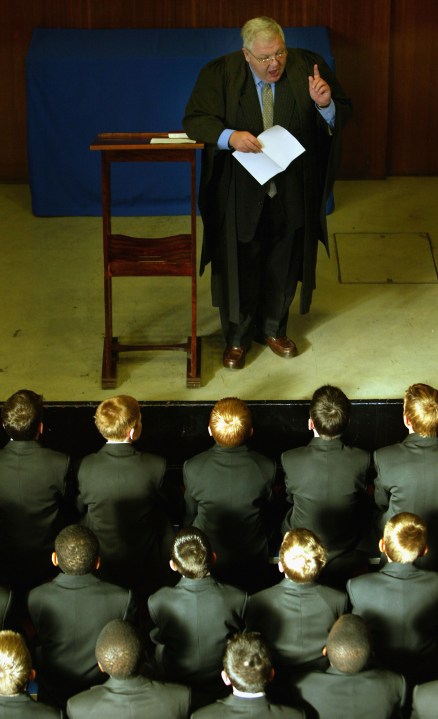 Michael Gove has said that ‘nothing is off the table’ when it comes to
dealing with the revelations in today’s
Telegraph that a chief examiner of the Welsh examination board, WJEC, steered teachers attending his board’s fee-paying advice session so flagrantly in the direction of what was likely to
feature in the next examination, it amounted, as the man said, to ‘cheating’.
Michael Gove has said that ‘nothing is off the table’ when it comes to
dealing with the revelations in today’s
Telegraph that a chief examiner of the Welsh examination board, WJEC, steered teachers attending his board’s fee-paying advice session so flagrantly in the direction of what was likely to
feature in the next examination, it amounted, as the man said, to ‘cheating’.
The irony of the thing is that those teachers who did not pay £230 a session for his assistance are likely to do much better by their pupils: the obliging examiner was telling the teachers about the cycle of examination questions — in other words, which bit of the syllabus was not going to feature in the questions. And I think we’re agreed — are we not? — that it’s preferable that pupils are taught the entire syllabus, not just those bits of it that will feature on exam day. Priming students to produce the precise wording that will attract the highest marks — well, it doesn’t make for independent thinking, now does it?
I was banging on about this years ago. Because, coming from Ireland, and having taken two state examinations there and then A-levels in England, I had no doubt that examinations are one area where a state monopoly is entirely desirable and market competition completely wrong. Look, you’re a commercially-minded examination board wanting to attract the punters, viz, the schools. Are you going to do it by driving up standards, failing more students and creating a more demanding syllabus? Are you hell.
Meanwhile, if you’re an employer or a university, how far is it in your interests that the candidates presenting their qualifications have taken exams from different boards, with different syllabuses and different standards of marking? How are you expected to know if one is ever so slightly less demanding than the others? You might lazily assume that the OCR, Oxford and Cambridge board, would be better than the Welsh one, or AQA or Edexcel. But, nowadays, when universities have to give candidates from poorer backgrounds the best possible chance to show their potential, discriminating against schools that opt for other boards would be problematic. In any event, OCR is subject to the same market pressures as the rest.
The problem is, as they say, structural; it’s inherent in a commercially based system where competition always tends to drive down standards, to attract more business. The only remedy for abuse is monitoring by Ofqual — but we don’t need reminding of how rubbish the regulator is. For the last 23 years of ever rising standards, Ofqual has been incapable of identifying the problem of narrower, more limited syllabuses, laxer marking and the inherent dangers of coursework, let alone providing a solution.
The one remedy is that the state should take charge of examinations, and set syllabuses and provide and monitor the markers. A uniform system for every pupil in England and Wales — excepting those taking the International Baccalaureate — would mean that we would know precisely where we stand: every candidate would be asked the same questions, in the same conditions. And there could be, as in the old pre-GCSE system, or the Irish system, two syllabuses and examinations for most subjects — for advanced and less advanced pupils.
I realise that a state-run exam system runs the risk of dumbing down too, and of political manipulation, but at least it would be easier to monitor and wouldn’t have the drawback of having to attract business. This isn’t a solution that would normally attract The Spectator, but a state monopoly is the way to go.








Comments